Moglix debuts in the UAE
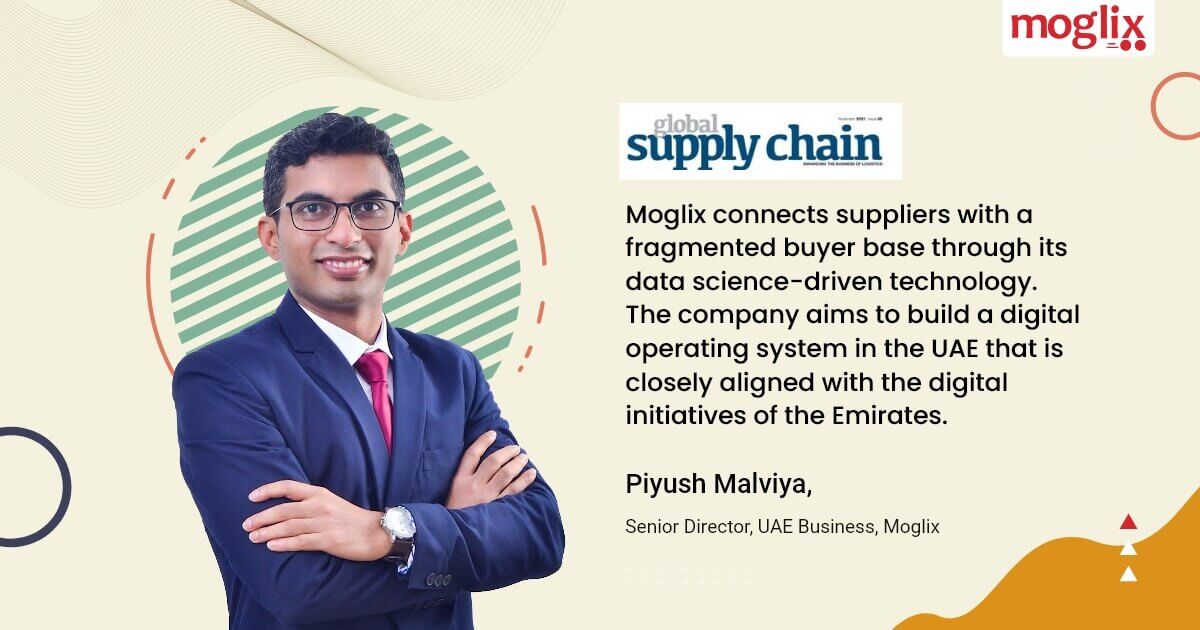
Moglix debuts in the UAE
Moglix connects suppliers with a fragmented buyer base through its data science-driven technology. The company aims to build a digital operating system in the UAE that is closely aligned with the digital initiatives of the Emirates.
India’s Moglix, the online industrial business-to-business marketplace, with a network of more than 16,000 suppliers, recently set up base in Abu Dhabi’s Kizad after raising US$ 120 million in its latest funding round that valued the company at US$ 1billion. The company operates out the Khalifa Port Free Trade Zone in Abu Dhabi and plans to expand operations across the Middle East.
“We are excited to enter the UAE, a gateway to the GCC and a major hub of global commerce and innovation with a vision to transform into a digital economy,”
affirmed Rahul Garg, Founder and Chief Executive, Moglix.
The macroeconomic fundamentals of the UAE are very strong. While we have launched our business in the UAE recently, we have been building our on-ground capabilities, onsite footprint, and team strength since 2020. We have been customizing our supply chain technology and internal business processes. Moving forward we aim to expand our breadth of offerings in the region and create successful customer collaborations that can serve as case studies for the custom supply chain requirements of different industries. The major challenge for us is the status quo and we are on track to enabling supply chain transformation in the B2B space through the new normal that is emerging.
We have been doing the groundwork in the UAE, building our onsite supply chain capabilities of supplier network, warehousing, and logistics. We are strategically positioned in KIZAD with close proximity to Dubai and Abu Dhabi. UAE is the hub of international trade and cross-border supply chains in the GCC. We aim to leverage our on-ground capabilities in the UAE to scale up our footprint across the entire.
Moglix looking to disrupt business procurement in the UAE
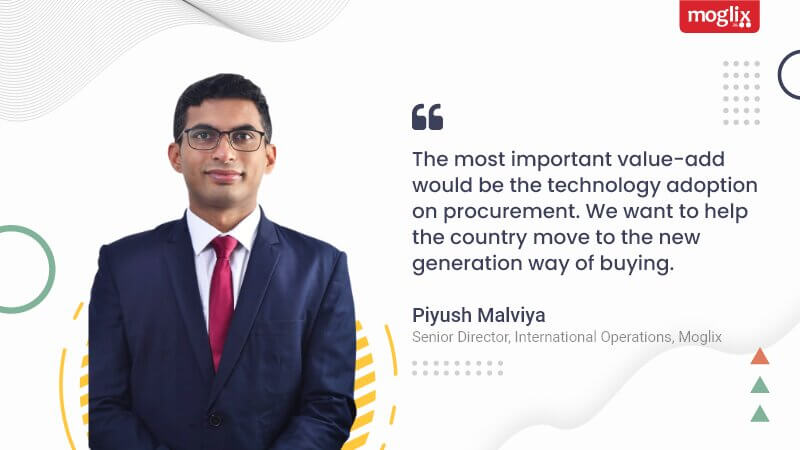
Moglix looking to disrupt business procurement in the UAE
Moglix is looking to bridge that gap between business and consumer buying and introduce technology to business procurement.
The Singapore-based online business-to-business procurement platform recently expanded to Abu Dhabi and Dubai with the ambition of solving the region’s procurement challenges, the result of outdated practices.
“While consumer-tech is benefiting from digital technologies and innovations, business-tech is still largely unchanged from what it was ten years ago. Business procurement still follows the same procedures of getting multiple quotations from the market and going through all the administrative work,”
said Malviya.
The online platform will also be deploying more of its solutions in the region, such as procurement options for the construction and manufacturing sectors.
قررت موجليكس توسيع نطاق أعمالها في الإمارات العربية المتحدة
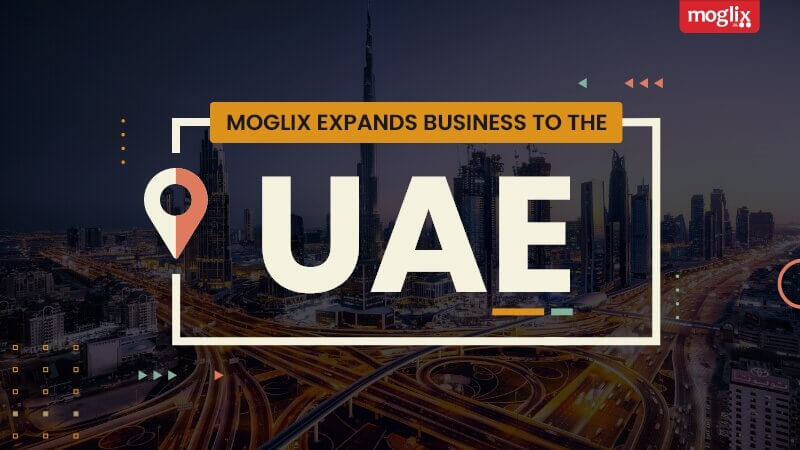
قررت موجليكس توسيع نطاق أعمالها في الإمارات العربية المتحدة
Moglix enters the UAE as part of its global expansion plans. We will enable enterprises across the Manufacturing, Oil & Gas and Infrastructure sectors to transform their end-to-end supply chain, from procurement to distribution. Through our digital platform, supplier and buyer network, and logistics strength,
we bring down cost, enhance sales, improve operational efficiency, and make the supply chain touchless.
“We are excited to enter the UAE. UAE is a gateway to the GCC and a major hub of global commerce and innovation with a vision to transform into a Digital economy. The UAE government’s mission and investment in digital upskilling is unmatched and we are looking to collaborate with local talent to jointly drive digital transformation. Our vision to build the operating system for commerce is closely aligned with the Digital UAE initiative to make the UAE a Smart Country and we are looking forward to empowering stakeholders to achieve this goal.“
says Rahul Garg, CEO and Founder, Moglix
Explore Moglix B2B E-Commerce Portal
Moglix recently raised its Series E round of funding led by Falcon Edge Capital through their Abu Dhabi based Alpha Wave Ventures, becoming the first B2B Commerce unicorn in the manufacturing sector, with a total funding of $220 Million and a valuation of $ 1 Billion
How Manufacturers Can Save MRO Costs in UAE by 10%?
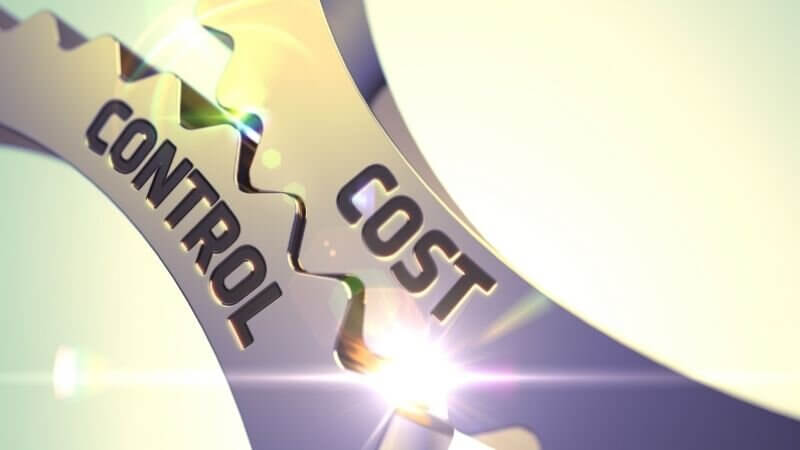
How Manufacturers Can Save MRO Costs in UAE by 10%?
If your enterprise is searching for solutions to save MRO costs in UAE, here is the catch. MRO costs usually account for somewhere between 5-10% of total costs and may not make up a significant chunk of the cost of goods sold (COGS). However, UAE has a highly competitive manufacturing landscape and even 1-2% of cost efficiencies can make or break your cost advantage.
To assist in a better way, we have outlined some of the steps to help manufacturers in the UAE avoid recurring expenses on MRO. If you are a manufacturer, you can take care of the following points to save MRO costs in UAE.
Manufacturers Must Minimize Return of Items
Delivering a product incurs a cost. Manufacturers price their products inclusive of that cost. However, when anything goes sideways, such as the product not being up to the quality standards as expected or has some defect, the buyer may return it. The return of items will add to the logistics expenses and impact the overall revenue.
Although the irregularities in the product may exist to some extent, manufacturers should try minimizing the double load on logistics by delivering the correct item in the first place. Here are a few points you can keep in check to reduce the rate of return:
- Quality Control Of Goods
- Correct Sizing Information
- Proper Packaging
- Timely Reviews and Feedback
- Round-the-clock Support
Take control of and implement those points to reduce the return of goods sold.
Manufacturers Should Opt for Digital Supply Chain Solutions
What humans can do, automation can do better. It holds in the case of supply chain management processes. It requires diligent work to manage the whole production line, i.e., from procurement to the final product delivery. If we focus just on the initial procurement part, there are different raw materials from various suppliers. On delving deeper, you have separate invoices for every procurement. On top of it, the communication channel is email, which requires regular follow-ups in case of any delays.
If you sum up all this, you will find it takes rigorous manual effort and consumes more time. As a result, your overall production time gets increased. However, if you enable procurement automation, you won’t have to stress repetitive tasks. Below are some notable advantages of relying on P2P automation:
- Easy-to-manage orders and supplies information
- A 50% reduction in TAT
- Easy monitoring of data
- Less hassle
Also, if multiple transactions happen at quick intervals, you can create an SOP and align your process to it. The SOP will help you scale your business. All in all, a refined approach coupled with digital supply chain solutions can create a difference in your final expenses. Thus, helping you boost your profits.
Manufacturers Must Find a Way to Deal with Ad-Hoc Procurement
As a manufacturer, you work on a contractual basis with your partners. You produce a definite amount of goods using the raw materials as decided in the contract. However, there are times when there is an unscheduled requirement of any product. Being a non-recurrent and non-strategic demand, it increases manufacturing enterprises’ expenses.
To solve this issue, manufacturers can take some steps such as:
- Enter into annual rate contracts
- Request for bulk orders
- Regulate your logistics
- Enable Procure-to-Pay solution
- Streamline processes
The main route of escape for manufacturers here is switching to annual rate contracts. In that way, they will be able to fulfill orders in a much better way. It will help them to avoid any unplanned expenses because of no ad-hoc buying.
Manufacturers Should Take Advantage of Data Analytics
The projection of demand and supplies can be difficult to gauge when you rely on static data. For example, an item you are producing may not garner similar interest in the market at a particular time due to various reasons. Since every step in the production line is interconnected, it is critical to have a correct projection right from scratch.
To do so, manufacturing enterprises can use technology and gain valuable insights into the procurement process. New-age technologies such as Artificial Intelligence (AI) and Machine Learning (ML) can help manufacturers create a mathematical model based on inputs from the data collected and facilitate better decision-making.
Some important avenues that AI and ML will open up for manufacturers are:
- Ability to look beyond the static data
- Evaluate the correct demand
- Improved risk management based on collected data
- Flexibility and transparency
P2P software solutions enhanced by AI and ML technologies can unlock opportunities that remain hidden from us. Thus, adding to the MRO costs, which you can save.
Wrapping Up
Summing up what we have learned here is that saving MRO costs for manufacturers in the UAE is a choice. With a careful, proactive approach and use of technology, you can minimize additional expenses and save up to 10% MRO costs, thus maximizing profits in the long run.
How Can OEMs Benefit from e-Procurement in UAE
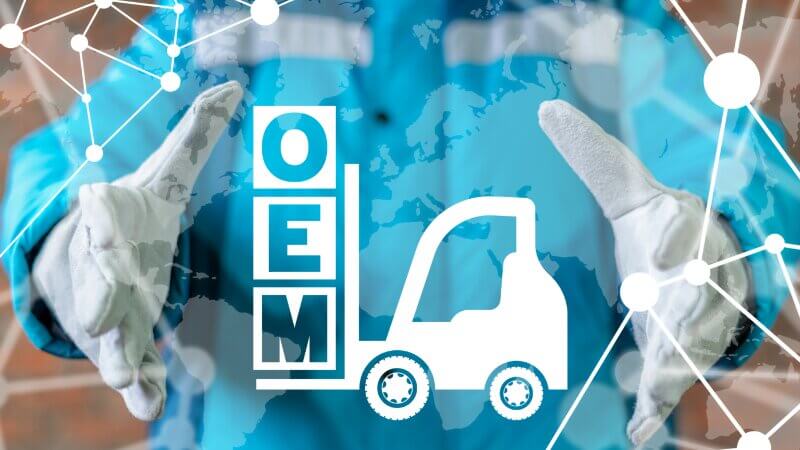
How Can OEMs Benefit from e-Procurement in UAE
e-procurement in UAE is not an isolated scenario; today’s world is running on digital wheels. Every industry is employing its digital skills to reap improved performance. The opportunities are immense.
However, despite continuous evolution, OEMs are slow to adapt to digital tools and techniques. It is because of the over-reliance on traditional skills and methods. As a result, the cycle from indirect procurement to the final delivery to customers, consumes 80% of the time of sourcing teams.
Cutting corners has become the pandemic-enforced trend to maximize profits in a business. At this time, digitalization in the supply chain can be a worthy step. It offers multiple advantages and underlines significant growth in the figures. To best understand its influence, let us unearth some key benefits.
Solving the Challenges in Supply Chain
The world is still recovering from the impacts of the COVID-19 pandemic. If we talk about the manufacturing sector, the virus has piled up on the challenges it was already facing. The COVID-19 induced lockdown dealt a heavy blow to the UAE economy, with businesses, and their supply chain all bearing the brunt. The International Monetary Fund (IMF) projected a 6.6% contraction in the GDP last year. It was mainly due to the impact of COVID-19 on key performance sectors and the fall in oil prices.
Sourcing the raw materials took the backseat, which resulted in a dip in manufactured products. Subsequently, the supplies to the end-users also got hampered. The dampening of business activities posed several challenges for the businesses to overcome.
To resolve the challenges, making a move in the right direction is imminent. With digitalization, businesses can adhere to the COVID-19 guidelines while conducting their business activities. Digital supply chain solutions are the most basic and foremost available methods to revive the lull operational activity.
Aligning with the Economic Growth
The UAE government announced a financial stimulus package to the tune of AED 100 Billion, among other measures to dilute the impact of the lockdown. However, the revival is not as instantaneous as the losses.
The IMF painted a brighter picture of the UAE’s economic recovery with a 3.1% growth, better than its 1.3% projection in October 2020. The positive outlook is a result of the combined efforts of the country and its citizens. OEMs can expedite their transition from traditional competencies to modern ones like adoption of a P2P software solution and supply chain digitization initiatives. Procurement automation, also known as P2P automation is integral to OEMs in UAE to stay on the course to recovery.
Taking a Step Towards Procurement 4.0
Since we live in Industry 4.0 era, we can find the production chain going ostensibly digital in its entirety. The ability to get a bird’s-eye view of your complete production link hands a better chance to minimize losses and maximize productivity. Businesses can acquire the necessary information on their logistics, such as the position of trucks, containers, and even pallets. All this at the click of a button.
To promote digital supply chain transformation, the UAE government is already taking steps under its Smart Government initiative to become a paperless government by 2021. The government is inviting the bid for tenders via electronic mode to facilitate a seamless procure-to-pay solution. Through this, suppliers can monitor their purchase orders and also submit digital invoices. This e-Procurement solution aims at digitizing and automating the complete process.
As digitalization is inevitable, OEMs must deploy it in their operational activities to make progress. e-procurement will enable easy management of complex supply chain processes. It will also allow businesses to use their people’s talent in other critical areas that require human involvement.
Experiencing Improved Decision-Making
Data is the key to gaining visibility into the supply chain. It is enabling digital supply chain solutions to divulge critical information to improve your decision-making capabilities and optimize business growth. With procurement automation in place, businesses can effectively monitor key performance indicators. On its basis, they can identify the improvement areas.
Cost-optimization is a must during this period of economic rebound. P2P automation offers this across the whole supply chain management processes. Digitalization’s other advantages are transparency, more visibility, a safe and neat collection of data, and cost-efficiency. All in all, businesses can streamline their processes and manage them effectively.
The Now and the Next for CPOs of OEMs in UAE
Digital supply chain transformation in the UAE is imminent, as the economy branches out to new-age non-oil verticals. However, it should not be in parts. For OEMs in the UAE to benefit from the adoption of e-procurement, CPOs have to take a unified view of the different but interlinked silos of the supply chain. Therefore, CPOs in UAE need to replace multiple solutions for different procurement functions with an integrated procurement automation system and consolidate supplier base management functions into one centralized control tower.
CPOs and the E-Commerce Boom in Indirect Material Sourcing
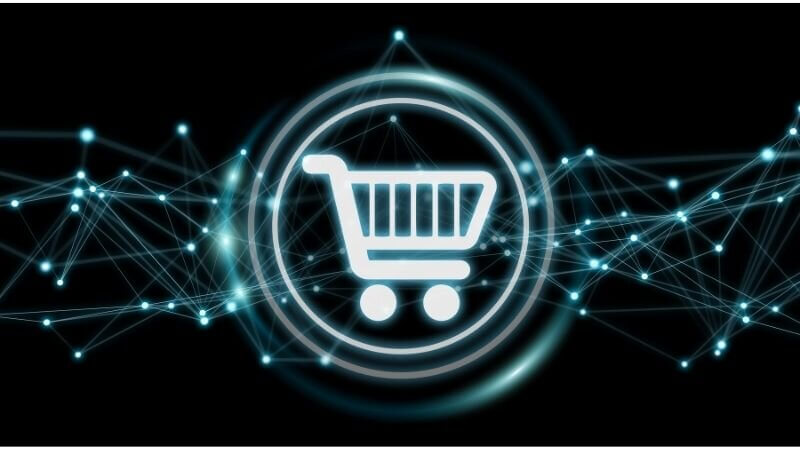
CPOs and the E-Commerce Boom in Indirect Material Sourcing
Indirect material sourcing has long been riddled with uncontrolled expenditure, non-compliance, and counterfeit products. Traditionally, these risks have made CPOs of large enterprises opt for a direct approach when dealing with suppliers.
With rising costs, potentially unregulated products, and the COVID19 pandemic-led supply chain disruptions in the UAE, a CPO’s job is becoming increasingly stressful. It is especially true for CPOs of large manufacturing enterprises across the Middle-East and North Africa (MENA) geographies where the pandemic has impacted 60% of freight capacity and multimodal logistics.
Integrated Solutions for Procurement
With the e-commerce boom taking over B2B marketplaces, CPOs are welcoming procurement automation solutions with open arms. These new generation P2P software solutions offer scalability, reliability, and risk assessment — all under the same roof.
Besides providing attribute-rich catalogs of pre-vetted, high-quality vendors of indirect materials, these B2B e-commerce solutions offer a dynamic range of functions. Some of these functions are customization, user-friendly interfaces and search options, real-time pricing, and industry benchmark comparisons. With their AI and ML capabilities, these systems can even generate analytics on KPIs such as price spread and per-category spend.
Benefits of E-Commerce for CPOs
B2B e-commerce offers a series of features that are beneficial across the p2p procurement process. They have multiple payment options available in AED, language translation assistance to Arabic, and easy refunds & return policies.
They also offer filtration of vendors based on their proximity to the manufacturing unit, quick logistics, and competitive shipping rates throughout the emirates. Let’s take a look at some of the key benefits e-commerce systems offer to CPOs.
المرونة
B2B e-commerce solutions give enterprises quick and easy access to a robust e-catalog of indirect materials, akin to a B2C e-commerce experience. The products and services are structured and itemized based on several attributes and filtered by a configurable list of business rules. This includes but is not limited to compliances, ratings & reviews, technical specs, availability, and shipping rates. These automated systems have rapid TATs across the p2p pathway and endow the CPOs with greater transparency and market awareness channels to make better decisions.
For instance, the global procurement head of an automotive OEM has said that e-commerce adoption for indirect material sourcing has increased their price competitiveness. “It has expanded our knowledge,” he explained, adding that their enterprise is now planning to digitize their direct material sourcing as well.
Cost Savings
Typically, enterprises spend 15% to 30% of their revenue on indirect material sourcing. It is usually valid for enterprises with fragmented spending structures and limited internal resources for procurements. The human capital spent on the traditional procurement process is perhaps the highest. CPOs spend countless hours in monotonous transactional activities that leave them with little to no time for any value-addition work to the enterprise.
However, with digital procurement automation solutions, operational costs in UAE can be reduced up to 40%. More importantly, they offload CPOs with hours of repetitive work. It unlocks critical free time for CPOs to spend on supply chain management and optimization of the p2p procurement process.
Technology Integration
For large manufacturing enterprises, the integration of an e-commerce marketplace with their existing ERP is the deciding feature of pre-investment. By entangling itself with the enterprise’s p2p procurement process, the e-commerce solution automatizes and simplifies a vital link of the digital supply chain. It enables the system to intelligently monitor inventory, issue purchase orders, execute payments, track deliveries, and receive stock. It also minimizes the hassles of negotiations, contract management, and price comparisons.
Some of the advanced digital procurement systems offered by digital supply chain solutions enterprises can seamlessly integrate with ERPs like SAP, Jagger, and Oracle. These systems successfully streamline the accounting, reporting, and controlling of the procurement process, thus building end-to-end supply chain visibility.
Data Cleaning & Management
A global market study indicates that almost 63% of the items listed in a conventional procurement catalog have incomplete or duplicate information. However, with digital supply chain solutions, CPOs can assess their MRO master data quality using the system’s native AI and ML capabilities. These data analytics tools can also learn user behavior over time and generate optimized results that promote operational excellence.
Reports on purchase, fulfillment data, including buying history, spend limits, and wish lists, make it convenient for procurement teams to increase their work efficiency.
What CPOs Need to Know
With increasing demand, the scale of high-quality suppliers of indirect materials is rapidly growing on B2B e-commerce solutions. Some experts predict that by the end of 2021, 60% of the large enterprises will be using digital procurement methods for indirect material sourcing. It is also aligned with the government’s vision to digitize UAE’s economy in the coming years.
With a rationalized and automated procurement solution in place, the role of the CPO is shifting from being a negotiator to that of a creator. The present-day CPO discovers new marketplaces, innovates new procurement strategies, and collaborates with suppliers. The CPO also draws new digital blueprints for quick approvals and reviews, and smoothens the enterprise’s upstream supply chain operations.
Startups fight COVID-19: Moglix fights against India’s oxygen crisis
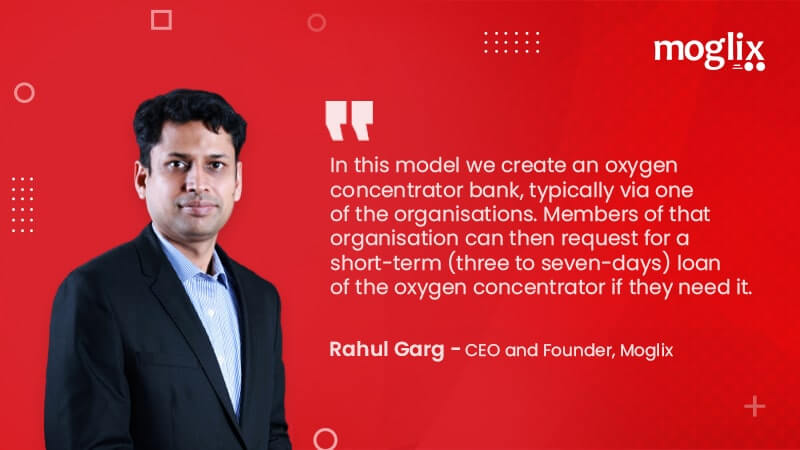
Startups fight COVID-19: Moglix fights against India’s oxygen crisis
As India battles the deadly second wave of the COVID-19 pandemic, startups, corporates, and individuals are all rallying together to ensure that they are doing their bit. The biggest challenge in the second wave is the dearth of oxygen cylinders along with crucial medicines.
“We estimate the need for at least 100,000 oxygen concentrators across India. However, each person buying an oxygen concentrator for themselves is not scalable and will lead to inefficient distribution of precious resources. Most people will find the cost prohibitive and the requirement short-lived (one to two weeks),”
Rahul says.
B2B ecommerce startup Moglix has been supplying PPE, oxygen concentrators, oximeters, thermometers etc. to essential goods and services companies to ensure their employees are protected. It has also distributed 15 million+ PPE kits and safety items amid this pandemic.
The startup has developed a “group sharing model” for increasing the impact of every oxygen concentrator by 100x, and is enabling organisations, NGOs, trusts, and RWAs to create oxygen concentrator banks for patients and providing a safety net for their communities.
“If your organisation would like to join us in this mission to provide a safety network to corona warriors, please write to us at info@moglix.com. We can help you set up similar network-based models for your organisation and share our learning/ SOPs. Let us come together to do our bit in this fight,”
Rahul Adds.
Moglix-Enables-Supply-Chain-Predictability-and-Efficiency-for-a-Covid19-Vaccine-Manufacturer

Moglix-Enables-Supply-Chain-Predictability-and-Efficiency-for-a-Covid19-Vaccine-Manufacturer
Moglix Enables Supply Chain Predictability and Efficiency for a COVID19 Vaccine Manufacturerقراءة المزيد
How Technology is Accelerating Value Creation in the Manufacturing Sector
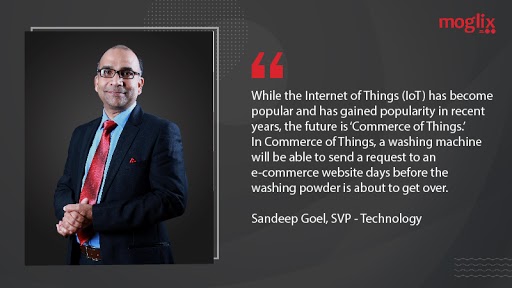
How Technology is Accelerating Value Creation in the Manufacturing Sector
Sandeep Goel, SVP- Technology shares his thoughts on how technology will pave the way for a futuristic manufacturing sector, at the Future Of Work Summit organized by YourStory.
He talks about the impact of COVID-19 and how it transformed the manufacturing sector in India. The pandemic accelerated the shift that Make in India has enabled in the sector, bringing about transformations, both physical and digital, boosting the self-reliance of India’s manufacturing sector.
Sandeep outlined key challenges that continue to persist in the sector, highlighting the need for streamlining order processing, and transaction data integration, and lack of intuitiveness when it comes to the application ecosystem.
He highlighted the role of technology in altering the future of manufacturing. How rapid advancements in digital technologies are revolutionizing business supply chains, and are poised to transform how the procurement function delivers value and enables swift decision-making in the ecosystem. He also talked about the need for constant connectivity as the norm, and how sensors are bringing devices and machines to life in the Internet of Things.
Moglix Welcomes Neelam Dhawan as Board Advisor
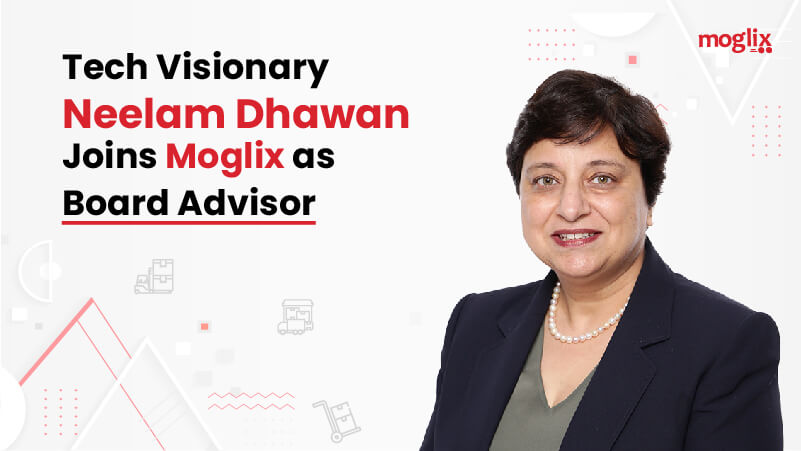
Moglix Welcomes Neelam Dhawan as Board Advisor
Neelam Dhawan, tech pioneer, joins Moglix as board advisor. Neelam has previously worked at Hewlett Packard (HP) Enterprise and Microsoft, IBM and HCl, among other companies.
Currently, she is a supervisory board member at Royal Philips, Netherlands, and non-executive director at ICICI Bank India, Skylo Technologies, Capita PLC, and Yatra Online. Moglix said it plans to start a new phase of global expansion.
“I am excited about my new role as a board advisor at Moglix. Moglix is pioneering supply chain digital transformation in the country and overseas. I look forward to contributing to Moglix’s endeavors to grow and deliver impact globally at scale.”
Neelam has been instrumental in shaping the IT industry in India. Throughout her career, she has repeatedly demonstrated leadership, innovation, and fearlessness, values that we hold in high esteem at Moglix. The scale of operations and innovation that she has successfully implemented, and her vision resonate strongly with the mission of Moglix to reimagine B2B commerce and supply chain at scale globally. We are delighted to have her as the board advisor at Moglix.

 نحن على أتم الاستعداد لنقودك نحو مستقبل التجارة بين الشركات وسلسلة التوريد.
نحن على أتم الاستعداد لنقودك نحو مستقبل التجارة بين الشركات وسلسلة التوريد.